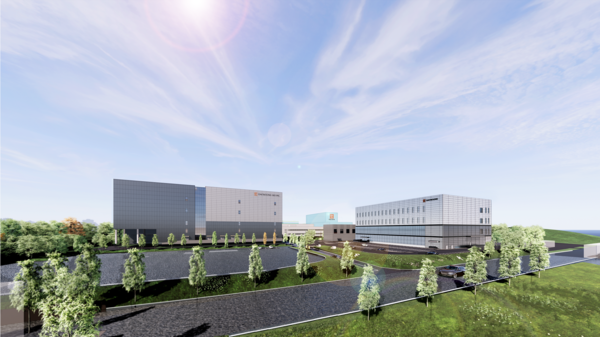Daewoong Pharmaceutical said it will build a third plant to expand the business of its botulinum toxin (BTX) Nabota and respond to the rising global demand.

The third plant, in which the company will invest more than 100 billion won ($74.6 million) in construction, will be located in Hwaseong, Gyeonggi Province. Daewoong plans to break ground in the first half of this year and complete the construction by 2024.
Upon completion of the third plant, Daewoong will have a production capacity of up to 18 million vials, including 5 million vials per year from the first and second plants.
The first and second plants have already passed the U.S. Food and Drug Administration (FDA) 's current good manufacturing practice (cGMP), and are the only BTX manufacturing facilities in Korea and Asia that have passed inspections by all three global regulatory agencies -- FDA, European Medicines Agency (EMA), and Health Canada.
"Daewoong Pharmaceutical's indigenously developed BTX Nabota has established a solid position in the global toxin market and is acting as an export spearhead for the Korean pharmaceutical bio industry," Daewoong Pharmaceutical's Vice President Park Sung-soo said. "With the construction of the third plant, we will expand the Nabota business in earnest, including entering the therapeutic indication market and the Chinese market, and developing next-generation formulations."
Meanwhile, Daewoong is steadily expanding its global footprint, having already entered the U.S. and the EU, with plans to enter Oceania and China later this year.
Exports of Nabota (Jeuveau in the U.S.) in 2022 increased by 123.3 percent compared to 2021, and the company expects that sales of Nabota will grow at an average annual rate of 20 percent by 2030, with overseas sales exceeding 10 million vials.
Daewoong also expects to enter the BTX therapeutic indication market, which is expected to account for 60 percent of the global toxin market by 2027, and plans to expand its business into next-generation formulations such as liquid, long-acting, and microneedles.
However, the company is also facing problems with maintaining its BTX business after the lowest court ruled in favor of Medytox in a civil lawsuit involving Medytox and Daewoong regarding the source of the latter's botulinum toxin (BTX) strain in February.
During that time, the Seoul Central District Court ordered Daewoong to compensate for damages of 40 billion won, turn over Daewoong's BTX strain to Medytox, and discard all finished BTX products made with the strain.
While Daewoong has since won a suspension of execution of the ruling and is going through the appeal process, if the ruling is not overturned, Daewoong's plans to expand Nabota will likely face serious setbacks.
Related articles
- Daewoong Pharmaceutical releases SGLT-2 inhibitor Envlo to treat diabetes
- Daewoong Pharm presents joint growth vision for Indonesian health industry
- [Botulinum Toxin Trends] Key tips for avoiding BTX resistance
- Daewoong seeks suspension of execution regarding the recent BTX origin ruling
- Daewoong goes all out to secure talent from Indonesia
- Daewoong Pharmaceutical signs 3 technology export deals totaling over ₩1 trillion
- Daewoong, YiPSCELL to work on artificial red blood cells to tackle blood donation shortage
- Daewoong to turn Envlo into blockbuster with ₩100 billion sales in 3 years
- Regulator revokes license for Huons Biopharma’s BTX for unauthorized sale
- Why did Nomura Securities raise price target for Medytox?
- Prosecutors reopen probe into Daewoong's alleged theft of Medytox's BTX strain

